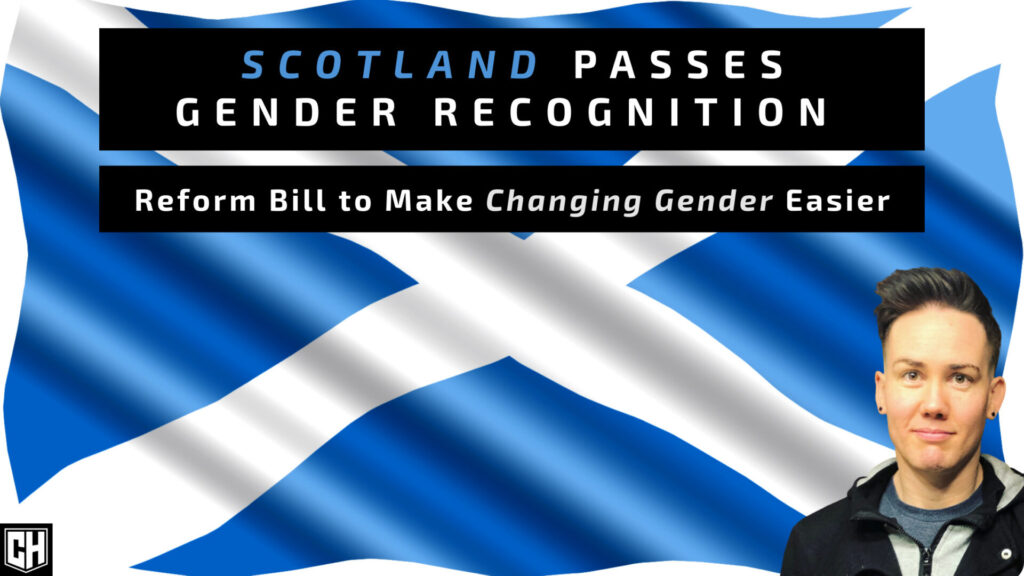|
|
In Scotland, a new Gender Recognition Reform bill was recently passed that allows transgender people aged 14 and over to change their legal gender without the need for psychological or other medical evaluation. This means that trans individuals in Scotland no longer have to go through a lengthy and potentially burdensome process in order to have their gender identity recognized by the state.
Previously, in order to change their legal gender in Scotland, trans individuals had to go through a process called the Gender Recognition Panel, which required them to provide evidence of their gender identity, including medical reports and letters from psychologists or other medical professionals.
This process could take several months or even years to complete, and many trans people found it to be stigmatizing and intrusive.
Scotland Amends its Gender Recognition Policy
Passed December 22, 2022, the new Gender Recognition Reform bill seeks to remove these barriers and make it easier for trans people to have their gender identity recognized by the state. Under the new law, trans individuals simply need to make a statutory declaration stating that they have lived in their preferred gender for at least three months and that they intend to do so permanently.
This declaration can be made online or by post, and there is no requirement for medical evidence or professional evaluations.
The new law also allows trans people to self-declare their gender identity on certain documents, such as birth certificates and passports, without the need for a gender recognition certificate. This means that trans people will no longer have to go through the gender recognition panel process in order to update their documents to reflect their gender identity.
The Gender Recognition Reform bill has been widely praised as a major step forward for trans rights in Scotland. It removes many of the barriers that trans people previously faced in order to have their gender identity recognized by the state, and it allows them to self-declare their gender identity on certain documents without the need for medical evaluation.
This should make it easier for trans people to live their lives in a way that is true to who they are, without fear of discrimination or stigma.
Overall, the Gender Recognition Reform bill is a welcome development for trans people in Scotland, and it is hoped that it will serve as a model for other countries looking to improve the rights and recognition of trans individuals.
Scotland’s Gender Recognition Reform Bill
As stated on the Scottish Parliament website:
The Bill changes the process to get a gender recognition certificate (GRC). A GRC is a certificate that legally recognises that a person’s gender is not the gender that they were assigned at birth, but is their ‘acquired gender’. The current process for obtaining a GRC is set out in the Gender Recognition Act 2004. This Bill amends that Act to make a new process in Scotland.
The Bill also aims to simplify the process, which the Scottish Government considers to be complex.
To view the full Gender Recognition Reform Bill, you can access it here.
